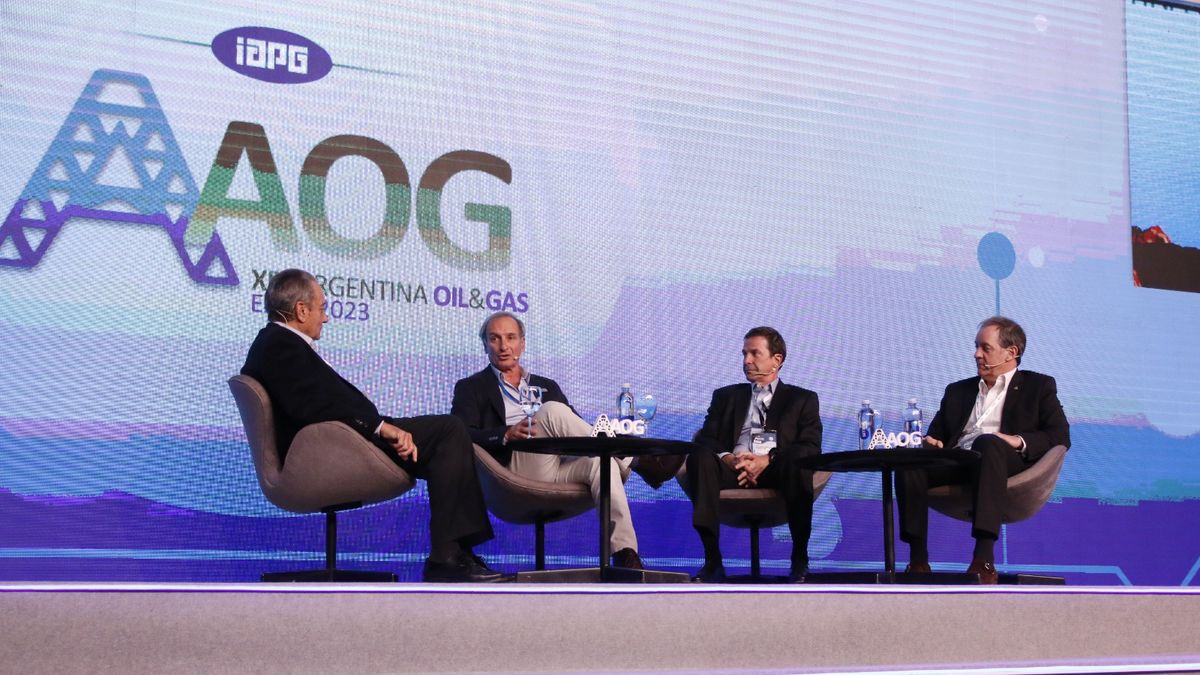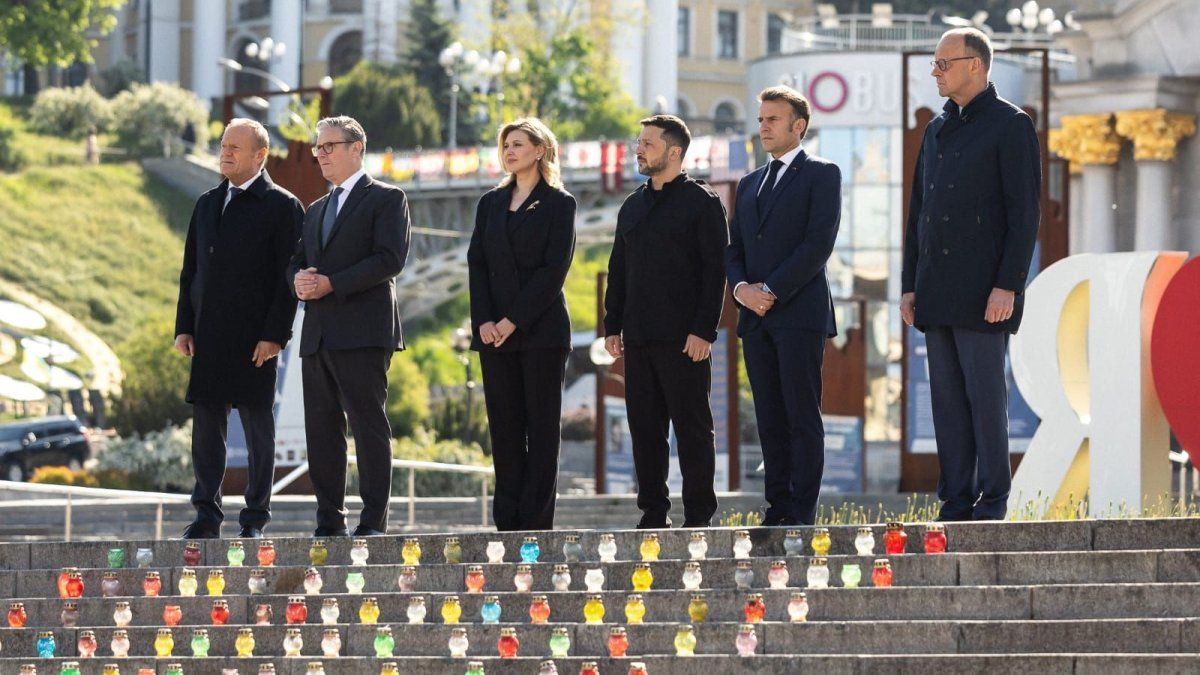Vaca Muerta stopped being a promise and became a reality, and there is optimism towards the future, according to the agreement of 21 CEOs who spoke during the Oil & Gas Expo (AOG) 2023, which is carried out in La Rural. However, everyone looks at more than the present: the aspiration is to reach a “Vaca Muerta X3”, that is, triple production, and take it from 300 thousand barrels to one million. But, they assure that the availability of resources is so great, and the window of opportunity limited by climate change, that the request is for turn Vaca Muerta into a global playerwith regional integration first, through million-dollar investments in infrastructure, and then global, with a new called for Congress to approve the LNG law.
“If Argentina really goes to one million barrels per day from Vaca Muerta, it will have to look for a gas market,” defined Ricardo Markous.CEO Tecpetrol, during the “CEO Meeting” activity, which takes place in the main auditorium of the exhibition. Tecpetrol alone produces 24 million cubic meters per day, which is 67% of what Bolivia produces.
Daniel RidelenerCEO of TGN, which is the company that operates the gas pipeline that goes to central and northern Argentina, assured that they have several projects to transport more than 19 million cubic meters per day. “Next winter we will be able to guarantee the supply of the northern provinces. Today that supply is at risk, because Bolivia’s commitments last until the end of the year,” he stated.
About arriving in Brazil, he stated: “All the infrastructure to get to San Pablo is in place. A few years ago here in this area it sounded like science fiction. In a few years we will see Argentine gas supplying along the TBG (Brazilian Gasoducto Bolivia-Brazil (TBG)”. Ridelener said that a “competitive price” of about US$9 can be reached, similar to what Brazil pays to import LNG. However, he revealed that there is a sensitive issue: “The tripartite negotiation between Argentina, Bolivia and Brazil is the most sensitive issue because of how the three actors will reach an agreement.”
During the presentation of 21 CEOs during the four days that the AOG Expo 2023 lasted, they agreed that among the challenges There is macroeconomic instability, the lack of access to foreign currency, the need to continue incorporating technology, and the unmet demand for trained human resources. “We cannot work with 10 exchange rates,” said Markous of Tecpetrol. However, one issue that all CEOs focused on was infrastructure. “The infrastructure is going to creak”Markous anticipated.
Turri from Pampa Energía put it in numbers: “Bringing production to 165 cubic meters per day means 140 gas wells per year, investments of around US$7 billion in the period. And for transportation, including reversal, US$6.5 billion. “These are important figures that give you full supply and the possibility of exporting outside of the winter peaks.”
In any case, Turri stated that “the gas market is in the world and that is where we have to aim.” The trade balance could increase by US$23 billion, he reported. Along those lines, several of the CEOs who sat on stage revealed that they have plans to invest in LNG, but they called for the approval of the bill that is in Congress. For example, the case of Pampa Energía, Techint and TGS, among others.
Oscar Sardi, CEO TGS, said that they work with three different investment alternatives, which vary according to cost and supply risks. “We have to define it by April and the shareholders will define it.” Regarding the law, he considered that “it covers almost everything” in terms of the requirements of the sector, but he thought that the perspective of the public could be taken into account. midstream.
The “Meeting with the CEOs” activity took place on Tuesday, Wednesday and Thursday. Two heavyweights from the international energy sector also participated in the last day’s event: Mandred Boekmann, director of Wintershall, and Eric Dunning, president of Chevron’s Latin American unit. The moderation was carried out by Ernesto López Anadón, president of the IAPG.
Source: Ambito




